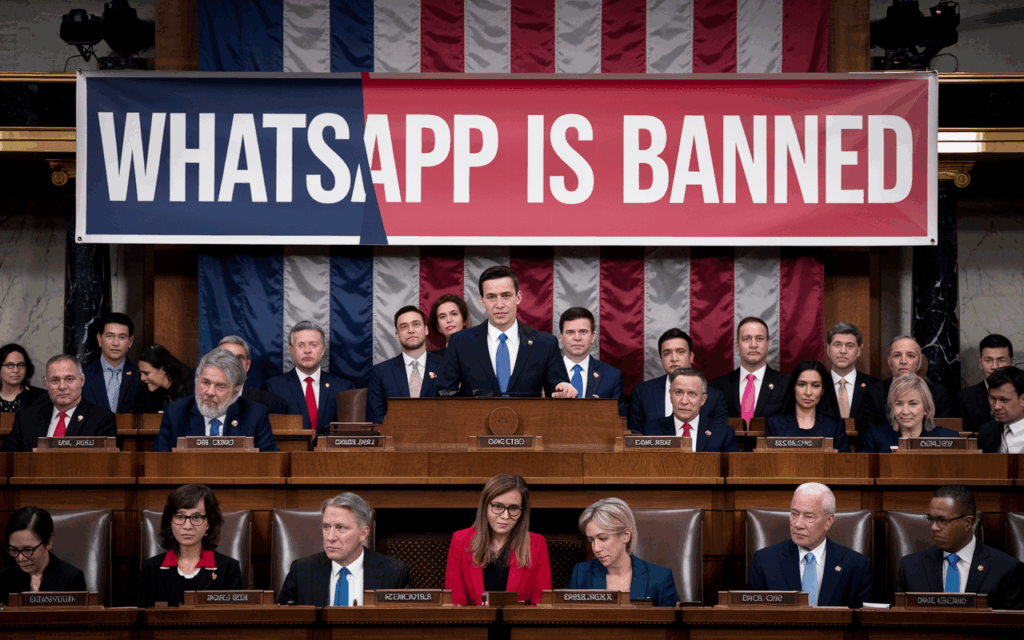💥 U.S. House of Representatives Bans WhatsApp: What It Means for Security 🚫
In a bold move that has raised eyebrows, the U.S. House of Representatives has officially banned the use of WhatsApp on government-issued devices. This follows a memo from the Office of Cybersecurity, labeling the app as a "high risk" due to concerns over data protection and potential security vulnerabilities. 😱
According to reports, the memo highlights several critical points:
-
Lack of Transparency: WhatsApp has been flagged for not being transparent about how it protects user data. This is particularly concerning for government staff who handle sensitive information. 🔍
-
Data Encryption Issues: The absence of stored data encryption adds to the security risks associated with using the app on official devices. 🔒
-
Recommendations for Alternatives: Rather than WhatsApp, House staff are encouraged to use more secure communication apps like Signal, iMessage, FaceTime, and Microsoft Teams. 🛡️
Meta, the parent company of WhatsApp, has pushed back against the ban, claiming that its end-to-end encryption is stronger than many of the approved applications. They argue that their security measures protect user messages from being accessed by anyone other than the intended recipients. Is this a case of misplaced priorities, or do government officials have a point? 🤔
Why This Matters
With increasing concerns about digital privacy and security, such moves are not only necessary but expected. In a world where privacy breaches and hacking campaigns are rampant, ensuring the safety of communication channels used by government officials is crucial. 🔐✨
This ban serves as a reminder that even popular apps can have their downsides, especially when it comes to sensitive communication.
Conclusion
As we navigate the complexities of modern technology, the decision to ban WhatsApp on U.S. House staff devices raises important discussions about cybersecurity and data privacy. It underscores the ongoing need for greater transparency and reliability in the tools we use for communication, especially in governmental contexts.
What are your thoughts on this ban? Do you think WhatsApp deserves a chance to prove its security measures, or do you agree with the House's decision? Drop your comments below! 💬👇

More Stories
Meta’s AR Ambitions and AI Safety: Insights from the Equity Podcast
Insight Partners Data Breach: A Wake-Up Call for Cybersecurity Awareness
Lovable’s Ascendancy: Anton Osika at TechCrunch Disrupt 2025